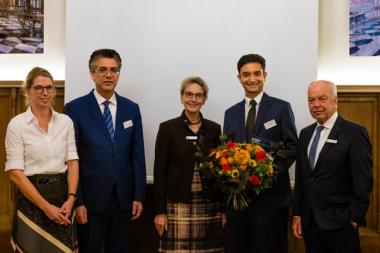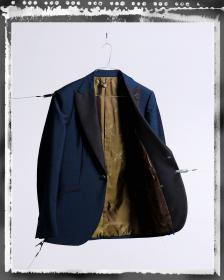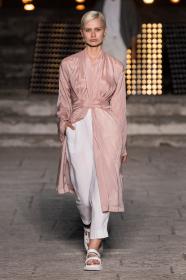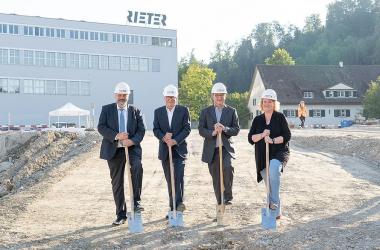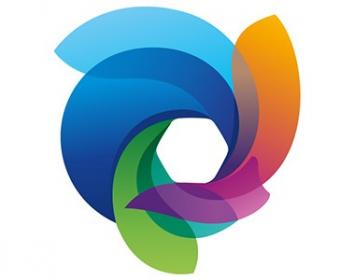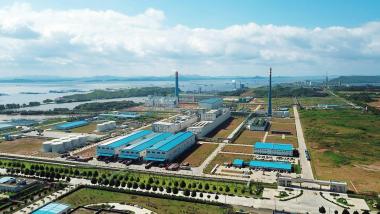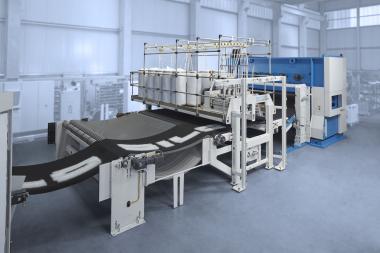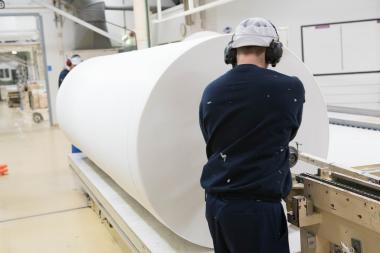Wissenschaftler vom ITM der TU Dresden mit dem Innovationspreis des Industrieclubs Sachsen geehrt
- Herr Dr.-Ing. Moniruddoza Md. Ashir vom ITM wurde am 12. Oktober 2021 für seine Dissertation "Entwicklung von neuartigen textilbasierten adaptiven Faserkunststoffverbunden mit Formgedächtnislegierungen“ mit dem Innovationspreis des Industrieclubs Sachsen 2020 ausgezeichnet.
- Der Preis ist mit 5.000 EUR dotiert und wird jährlich an einen Absolventen der TU Dresden verliehen.
Die Entscheidung zur Vergabe des Innovationspreises des Industrieclubs Sachsen 2020 erfolgte im Sommer 2021 durch ein Preisgericht. Die Verleihung des Innovationspreises erfolgte im Rahmen einer Veranstaltung des Industrieclubs Sachsen im Schloss Eckberg in Dresden am 12. Oktober 2021.
In der Dissertation werden alternative Ansätze auf Basis von innovativen textilbasierten adaptiven Faserkunststoffverbunden (FKV) mit strukturintegrierten Formgedächtnislegierungen konzipiert, umgesetzt, erprobt und im Vergleich mit konventionellen technischen Lösungen evaluiert. Daher galt es, eine Vielzahl bisher ungelöster konzeptioneller sowie textil- und materialspezifischer Fragestellungen zu bearbeiten und tiefgreifend zu analysieren. Hierzu zählen die Entwicklung neuartiger Ansätze und technologischer Lösungen sowohl zur reproduzierbaren Einstellung einer anforderungsgerechten Grenzschicht zwischen der Formgedächtnislegierung in Drahtform sowie dem umgebenden Faserverbundwerkstoff, als auch zur vollautomatischen Integration des textilverarbeitbaren Aktors in die Verstärkungsstruktur. Weitere Zielstellungen bestanden in der Ermittlung von Struktur-Funktionseigenschaftsbeziehungen, dem Nachweis der funktionalen Langzeitstabilität sowie der Konzeptionierung und Erprobung von industrierelevanten Funktionsdemonstratoren. Hier wurden adaptive FVK als bionisch inspirierter Flug-, Nachgiebigkeits-, Greif-, Spann-, gezielter Flüssigkeitssteuerungs-, Wisch- und Fortbewegungsmechanismus konzipiert. Diese Demonstratoren repräsentieren alle wesentlichen Funktionalitäten der adaptiven FVK-Kinematik und lassen sich leicht auf andere industrielle Anwendungsbereiche übertragen, wie z. B. die Flugzeug-, Automobil-, Medizin-, Soft-Robotik-, Bau- oder Industrietechnikbranche.
Die Forschungs- und Entwicklungsarbeiten erfolgten in enger Zusammenarbeit mit der Industrie, wie z. B. thoenes Dichtungstechnik GmbH und Elbe Flugzeugwerke GmbH und werden zukünftig am ITM intensiv fortgesetzt. Die neu entwickelte Technologie und Strukturen werden dem Leichtbau insbesondere als Knotenelemente für Rahmentragwerke im Fahrzeugbau, in der Luft- und Raumfahrt, im Maschinenbau sowie auch in der Architektur neue Impulse verleihen. Gegenwärtig wird forschungsseitig die Anwendung dieser Strukturen für medizinische Bereiche, insbesondere orthopädische oder prothetische Hilfsmittel, vorangetrieben.
Technische Universität Dresden


